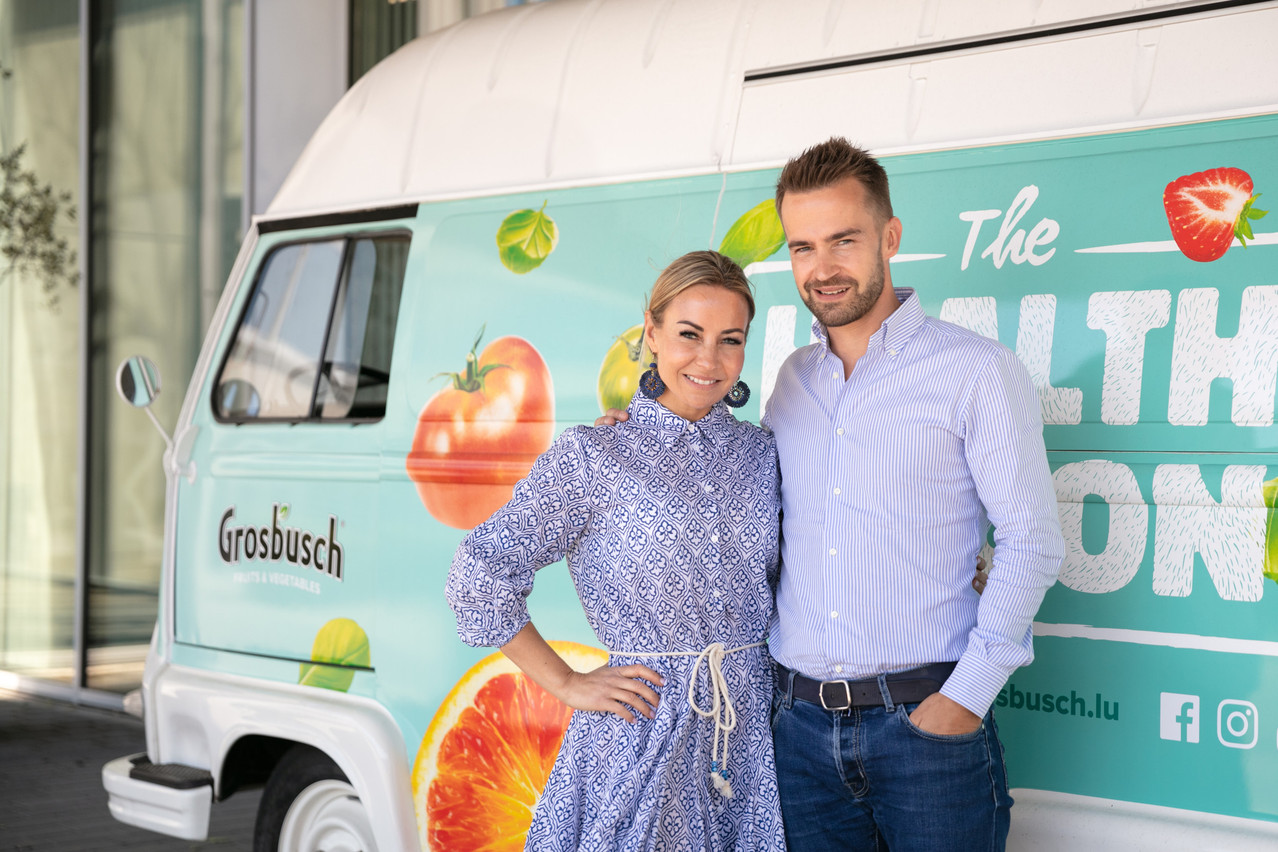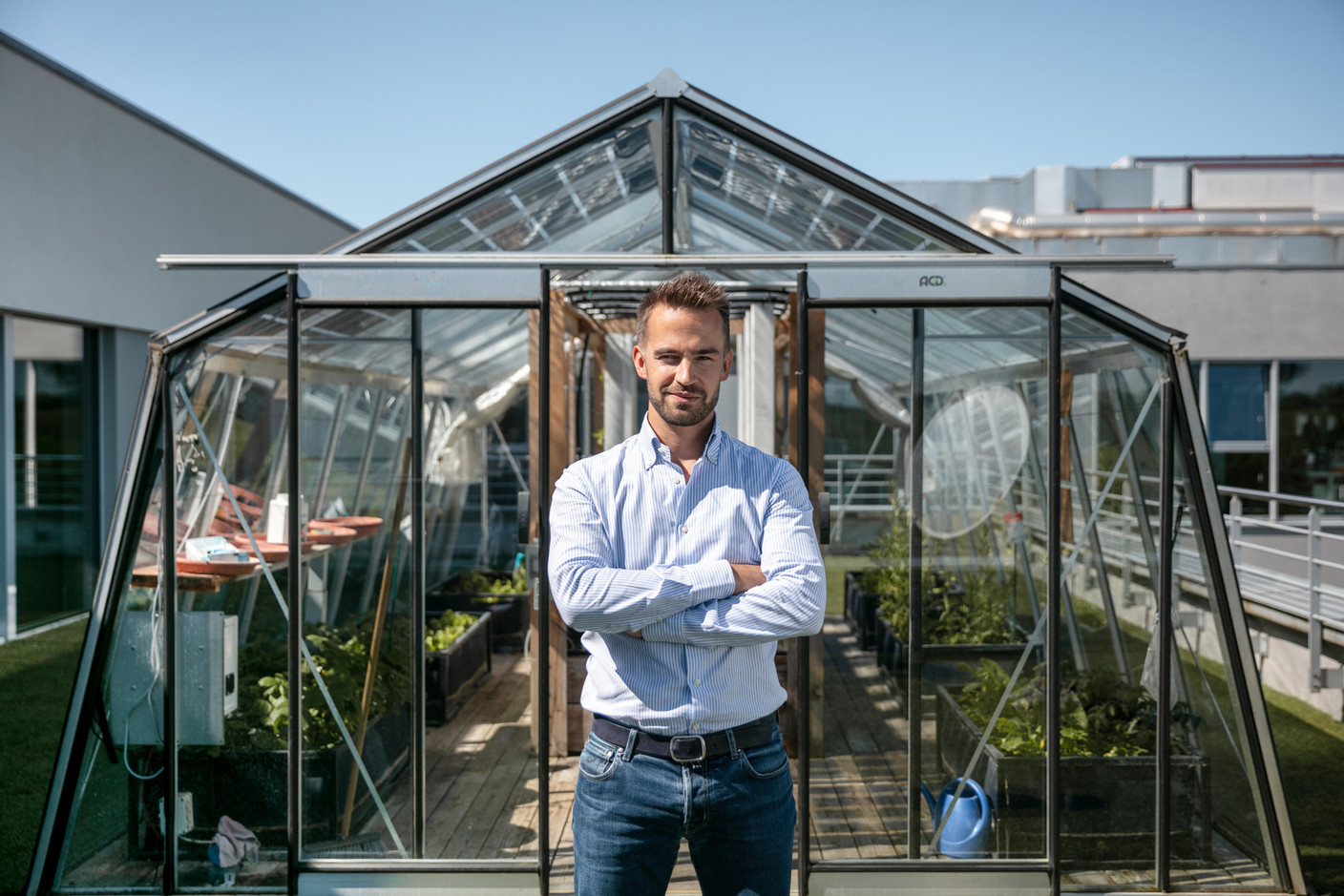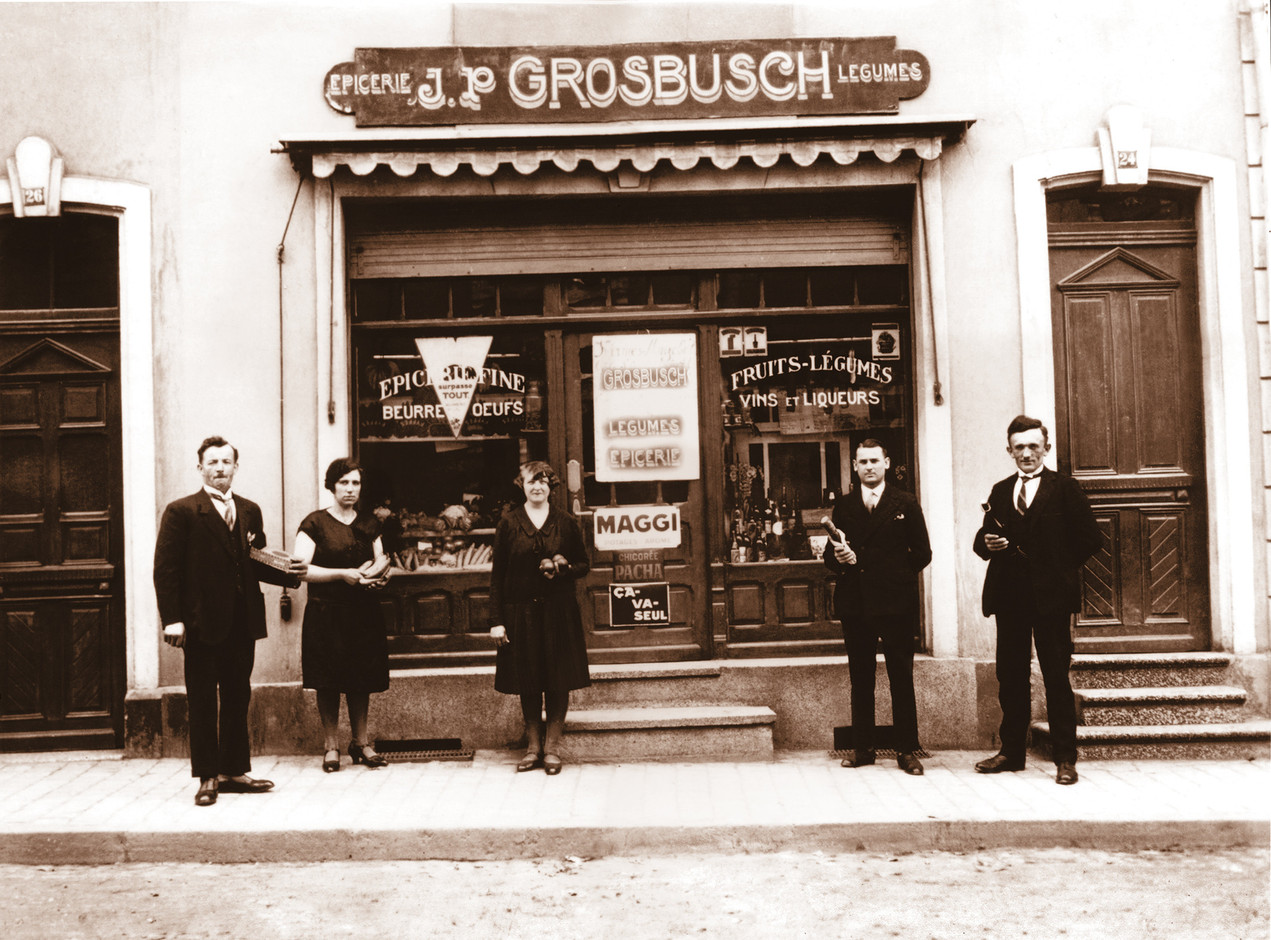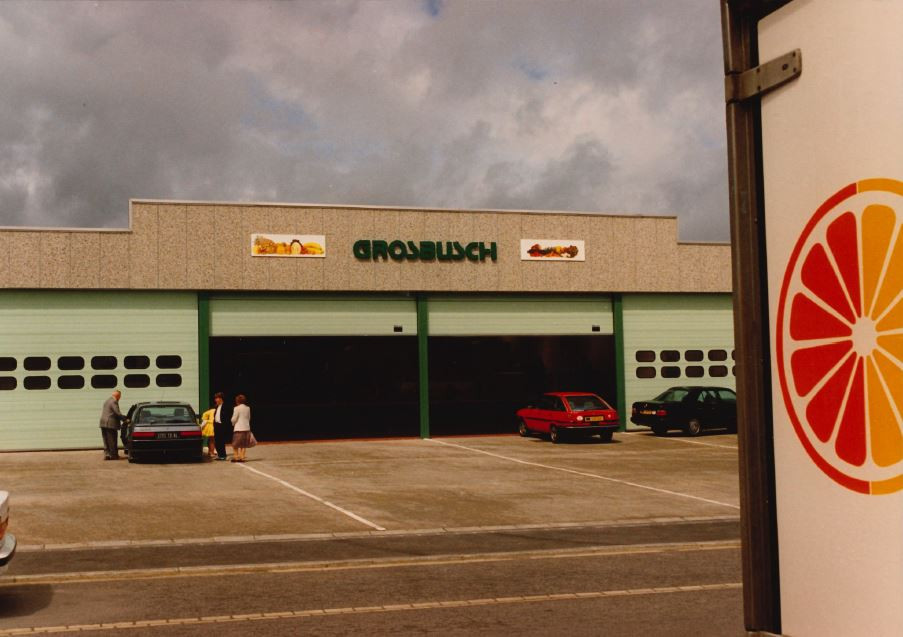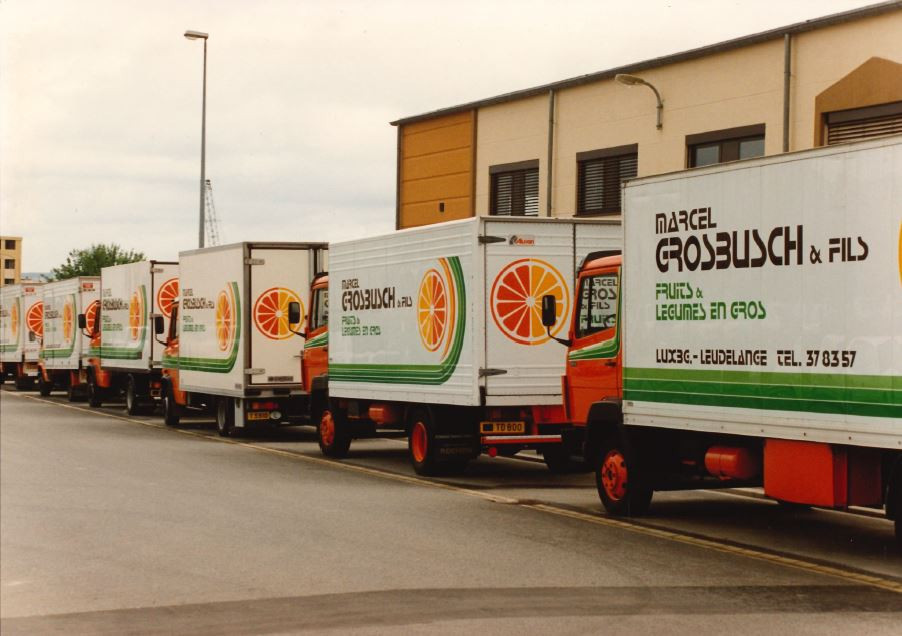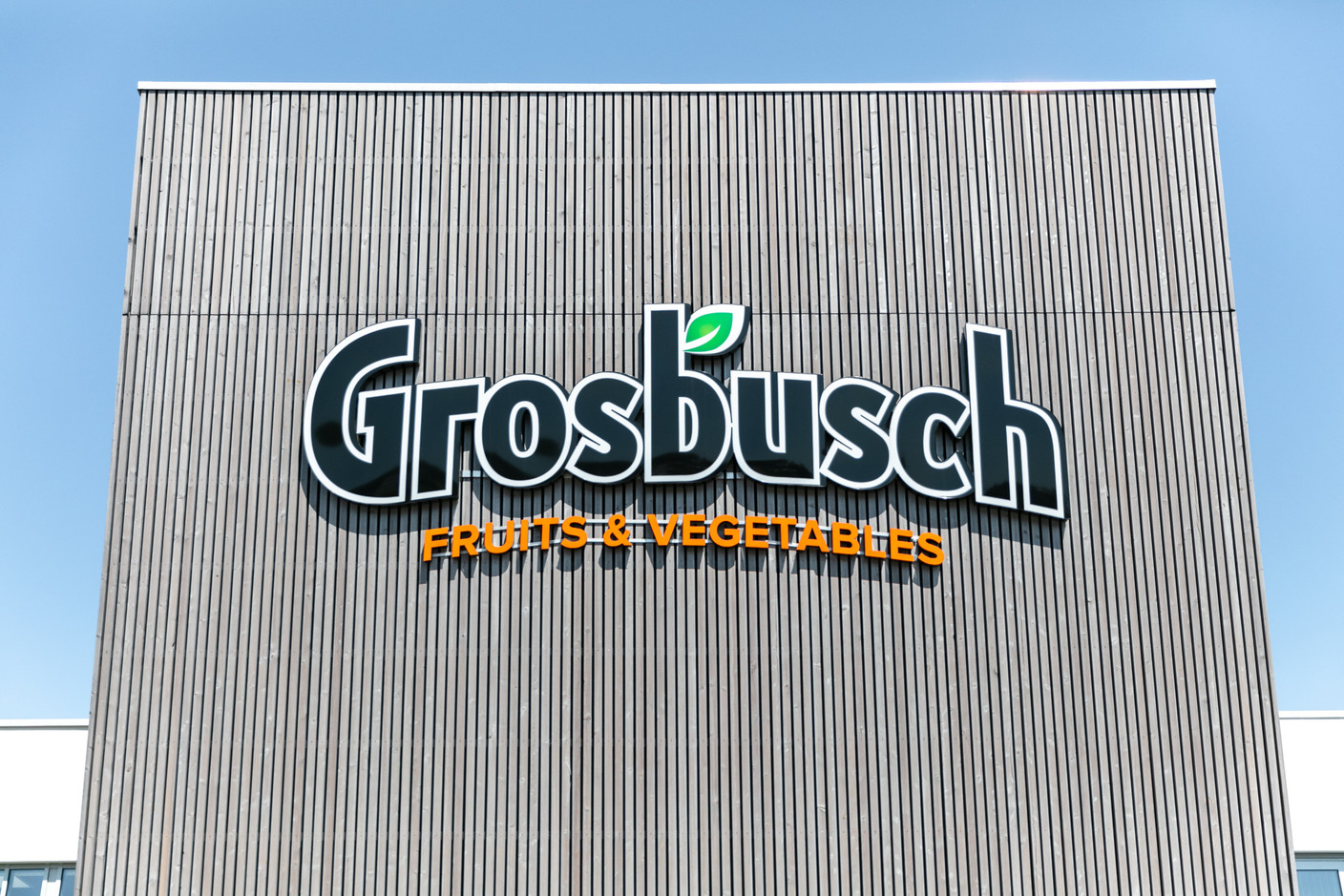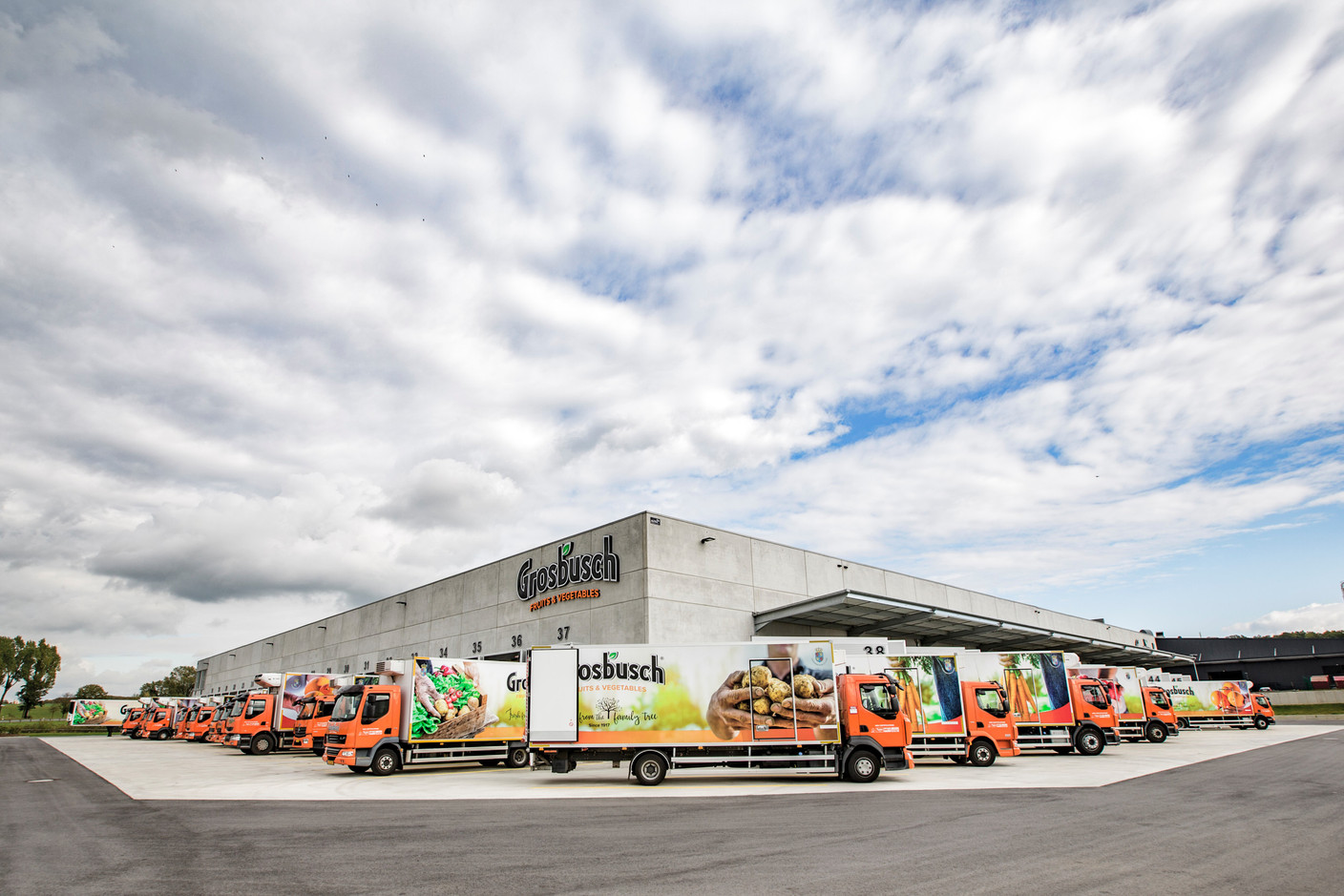Goy Grosbusch has been running the family business that bears his name for the past two years. But it was a century earlier, in 1917, when his great-grandfather Jean-Pierre Grosbusch founded the grocery shop. Since then the Luxembourg wholesaler, specialising in fresh fruit and vegetables, has grown into a national staple with an annual turnover of €60m.
From the meeting room, whose large bay window overlook a greenhouse on the roof, the 34-year-old manager speaks of his not-so-distant past. “My sister [Lynn Grosbusch] and I joined the company in 2012. It wasn’t our father who forced us. On the contrary: he told us it was a complex job, where you have to get up early, stay late.”
Before that, the siblings had graduated with bachelor’s degrees in business administration. They had the family business in mind, even though had also done a degree in web design and computer science previously. “My friends said: ‘It’s easy; your father is there. When he leaves, you take his place and earn your living.’ So I wanted to prove that I was capable of doing something else,” he says. “I just saw that I liked interaction and that I missed the business scene, which I couldn’t get doing programming behind a computer.”
A path to integration
Goy’s taste for business (and fruit and vegetables) therefore took over. He had a series of professional experiences, from marketing to picking melons in France and strawberries in California. “It was pretty tough, but it was always something that motivated me,” he says. These experiences were necessary to confirm his longstanding desire to work in the family business. “Wanting is one thing. Knowing that you can is another,” he says. “I always wanted to do it, seeing my father. It was inspiring to think that he was managing it all.” He also remembers his first contact with the field, in 1990 at the age of three, at the opening of the establishment at the Cloche d’Or. “You can still smell it when you pass by the markets in town, which reminds you of the old depot, where it all started for us.” For his sister, two years older, the desire was confirmed by working for a wholesaler in Switzerland.
But the boss’s two children didn’t get their place in a snap. They had to undergo two years of integration. “We cleaned the warehouse, got our licence to drive the truck, worked in accounts, in marketing… everyone knows us; we know everyone.” It was a way to build trust with the employees. “It’s complex to work with people we’ve known for 30 years. We did these internships with them and ten years later we become their managers.” They went on to work in commercial and administrative roles until they officially took over the reins in 2019.
I wanted to prove that I was capable of doing something else.
“We were on holiday together, on a wooden boat in Turkey, when we discussed and made the decision.” The roles were easily defined: manager of the Fruit@Office department and, since its launch in the middle of the crisis, of Fruit@Home for the sister, who wanted to give priority to her family life. And for the brother, managing director in charge of the company.
“Four years ago, my father bought out my uncle’s shares,” he explains. The cousins were “not necessarily interested”. Two years later, “my sister and I took over 100%. This was a logical consequence of our father’s retirement. But he doesn’t want to talk about retirement. It’s difficult to give your baby to someone and say: ‘I won’t touch it anymore’.”
René Grosbusch still participates on the board alongside outside directors. “We have a great relationship with our father. We see each other every weekend. We don’t spend our dinners talking about the company, but if there are decisions to be made, we discuss them quickly together. He has never blocked us with a veto. He trusts us.” They benefit from his experience and add a more modern vision in terms of the digitalisation of services.
A family charter to prevent conflicts
The siblings are already thinking about future generations. The company could one day pass into the hands of Lynn’s four-year-old twins, Goy’s two-year-old son or his one-year-old daughter. Although, he insists, “we want to give them a choice.”
It’s complex to work with people we’ve known for 30 years. We did these internships with them and ten years later we become their managers.
To avoid disputes when the time comes, they have introduced a “family charter”. The document compels appointees to have an induction course, in addition to a certain level of education and external experience, or to have the appointment validated by a management committee. “We’ve seen from the experiences of the last few years that the only way to remedy all this is through communication.”
Without giving away any details, Goy admits that “every family business always comes up against somewhat complicated situations when it comes to handing down from one generation to the next. Direct relationships between brothers and sisters are one thing. But when you’re talking about cousins with a different background, it’s often complicated to get on the same track. Ideas, money… you can quickly enter a toxic universe when you don’t talk early enough,” i.e. about who wants to do what.
The charter also mentions fixing salary levels, “so that everyone knows that if I start as a cleaner, I won’t get the salary of a director, but one of a cleaner.” It also makes it impossible to work with their partners, in order to “avoid any conflict” that could jeopardise the company’s future; Goy’s wife works in a law firm, Lynn’s husband in a fitness business.
Crisis and recovery
It was not the easiest time to take over the company, with a drop in business due to the covid-19 pandemic, which struck one year after Goy took over. However, he has no regrets. “On the contrary: it was a great challenge. We changed a lot of things, we were even more united with our teams. For example, the company developed Fruit@Home to compensate for Fruit@Office’s lack of activity due to teleworking. For the future, we plan to work on large-scale tenders in Europe and to focus on international exports, particularly to the United Arab Emirates, all the while maintaining a high level of product and service quality.”
The family format will allow for more “flexible” decision-making, he says.
Nor does Goy forget the “enormous social responsibility” that weighs on his shoulders. “We have 250 people, sometimes with two generations of the same family” among the employees. He wants the company to remain “sustainable” without “taking huge risks”, in order to preserve the many families of this family business.
This article in Paperjam. It has been translated and edited for Delano.
